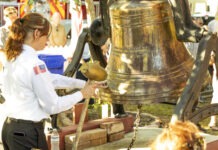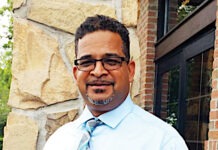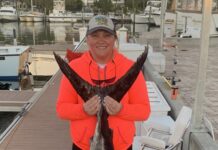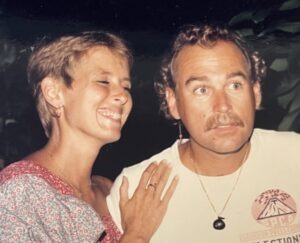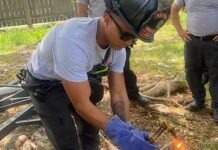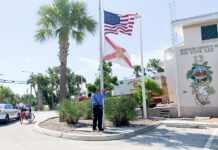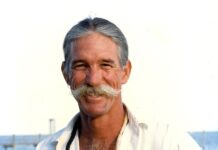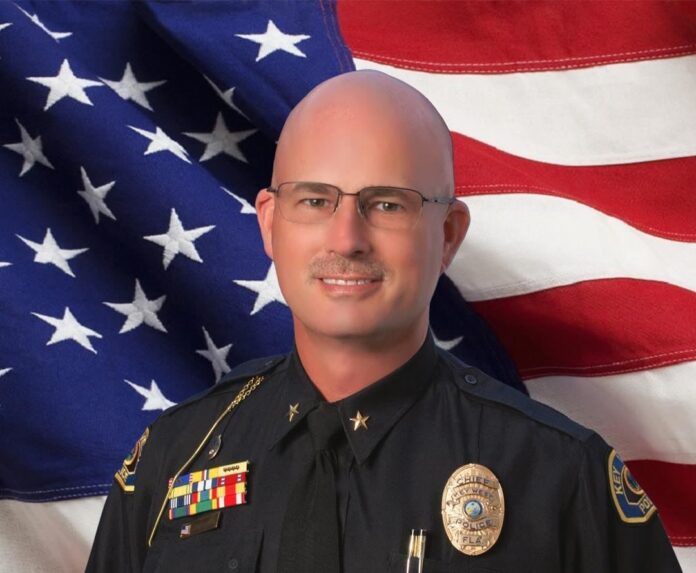
I never imagined spending a Saturday of my summer break sitting in a classroom full of future police officers, hearing about the dangers and difficulties of law enforcement careers.
But I recently joined a class of over 20 brand new police recruits as they continued their training, learning to protect and serve in paradise.
This particular Police Academy course, taught by Inspector Michelle Maxwell of the Monroe County Sheriff’s Office, prepares students for the state certification exam, which they must pass during their five-month training to become a law enforcement officer, and a member of the Key West Police Department, which often sponsors police recruits. The KWPD will pay for the academy training in exchange for a commitment that, once certified, the officer will work for the KWPD for a certain amount of time.
Maxwell is an attorney and a certified law enforcement officer who has worked as an inspector in the office of internal affairs for MCSO since 2011. She has a master’s degree in internal relations from Georgetown University, a law degree from West Virginia University and more than a decade of experience teaching this class.
“The legal block in the Basic Law Enforcement Academy provides law enforcement officers with an intense, immersive lesson on the United States Constitution and constitutional law as well as laws specific to the state of Florida,” Maxwell said.
In the short time I attended the class, the daunting tasks facing these recruits became abundantly clear. (Apparently, police officers DON’T just park on the side of the road, waiting for a college kid like me to speed by.)
After just one day observing the class, I had a new understanding of what it truly takes to protect and serve.
Police officers and sheriff’s deputies must know the laws they are entrusted to enforce — and which ones are civil matters for a court to decide. How do you protect the public from illegal behavior without violating a suspect’s civil rights? Is a homeless person allowed to sleep on the beach in Key West? What happens when a child custody dispute — typically a civil matter handled by the courts and not the police — escalates to a criminal situation due to violence or gun threats?
While Maxwell reviewed both real-life and hypothetical scenarios, I realized just how difficult and unpredictable the job is. Officers must make precise, crucial and split-second decisions that can have life-changing outcomes, both good and bad. And they’re expected to make those decisions in good faith based on their training.
It was clear to me the goal of the class was not to create perfect law enforcement officers, but to prepare them for the imperfect society they’ve sworn to protect and serve.
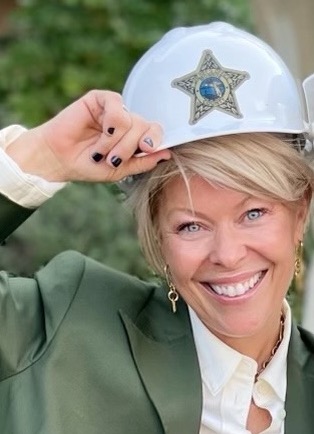
“Learning to be a great police officer takes time and comes with experience,” said Key West Police Chief Sean Brandenburg, who has led the force since 2018. “The academy is meant to make sure officers are ready to go out in the field and make good, solid choices and judgment calls.”
Maxwell gives them the chance to make those calls in the classroom before they’re at a crime scene. And she manages to make the class interesting, engaging and enjoyable even as students learn about lawsuits they could face and decisions that could cost them their job.
“When I attended the academy as a recruit, the classes were absolutely, miserably boring. I knew I could do a much better job,” Maxwell said, “I try to keep the class relevant and interesting using real-life examples from right here in the Florida Keys, which is not hard since this place has one of the most fascinating legal histories in the United States.”
After just a few hours of Maxwell’s pointed examples and humorous anecdotes, I had a new understanding of and respect for the challenges police officers face and the insane amount of information they must remember.
Plus, I learned a vital personal lesson: Name-drop Inspector Michelle Maxwell next time I get pulled over. (Just kidding, Inspector.)
Dylan Olive is a journalism student at University Florida and a summer intern with the Key West Weekly.
